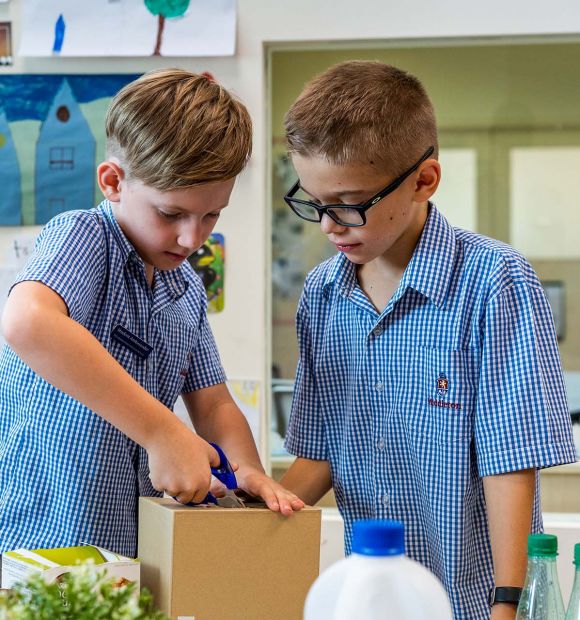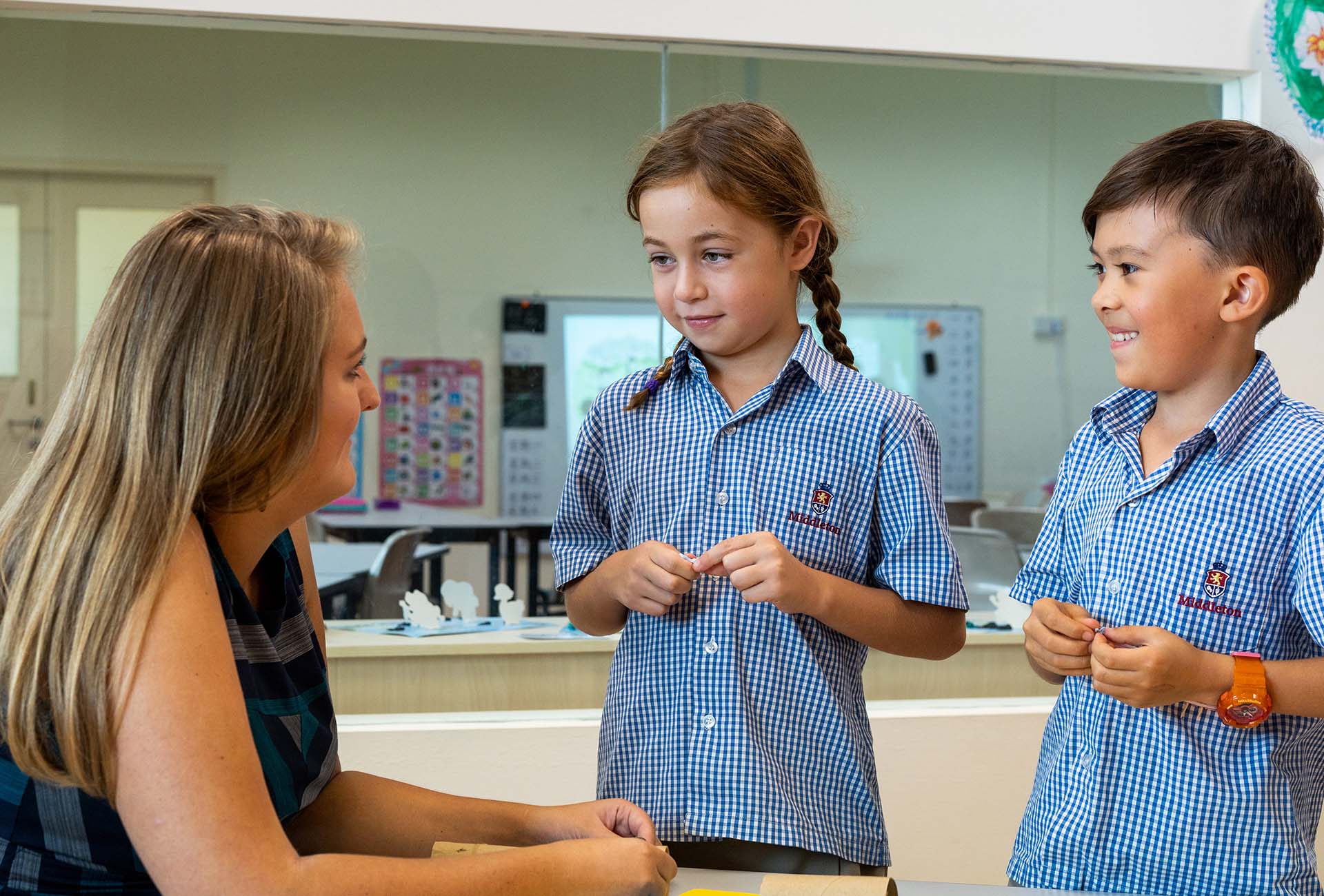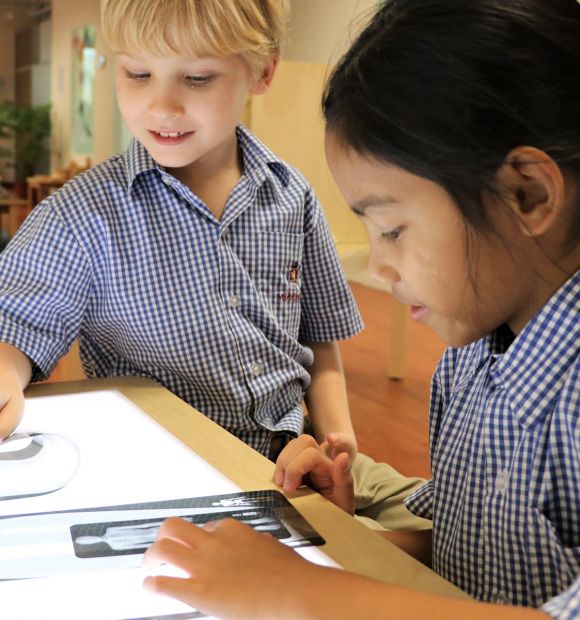Assessments are an integral part of teaching and learning. All students are regularly assessed to help make learning experiences more meaningful and useful.
Regular formative assessments are used as a reflective tool by students and teachers to help scaffold learning and help students take ownership of their learning. Assessments are done during class time as part of regular teaching and learning. Assessment practices include pre-assessment, formative and/or summative assessments, along with diagnostic assessment if required. A range of strategies and tools are used to gather information about students’ learning. These may include but are not limited to regular observations, documentation and analyses of learning journeys through discussions, projects and/or other classroom work, written tests, portfolios etc.
Standardised tests are also conducted for different areas including reading, writing and maths to help the teachers understand individual and group needs to adjust the programme of learning during the year. Each topic or unit of inquiry includes regular assessments to determine the students’ growth and grasp of the unit-specific knowledge, skills and understanding. Action is an important component, and students’ actions will be encouraged and celebrated as they apply their learning to meaningful contexts. Parents are encouraged to share with the teachers the actions that the children took at home as a result of their learning.

Parental Involvement
The students’ learning journeys are shared with the parents through portfolios in Terms 2 and 4, parent-teacher conference in Term 1, ‘next steps in learning’ reflection session in Term 3 and student-led conference in Term 4. Progress reports are issued twice a year in June and December. The teachers encourage parental involvement through review and reflection on their child’s learning by encouraging discussions at home with the child. Teachers’ fortnightly newsletters help parents develop an understanding of the class programme. It is vital to keep in mind that not all students may be at the same starting point in their learning journeys and the distance covered by the individuals is as important as the milestones reached.
Monitoring of Learning and Student Development
Middleton International School shall monitor the students’ academic performances and use the data collected to continually review our processes to ensure that we always deliver high-quality educational services. We also review how the school monitors students’ development and take appropriate actions for students who have not met the required standards.


Promotion Criteria
The graduation criteria is based on their age as well as multiple factors including formative and summative assessments. Assessment is also done in terms of social-emotional readiness as well as language acquisition. These are different for pre-school and gets progressively difficult for the primary, middle and high school. We use standardised assessments for language and maths.
Certification Awarded
Students will receive a Middleton certificate each year.
Grade 10 students will receive an IGCSE certificate and Grade 12 students will receive an A-Levels certificate, based on their results from the final exams and coursework (where applicable). This certificate is issued by Cambridge.
